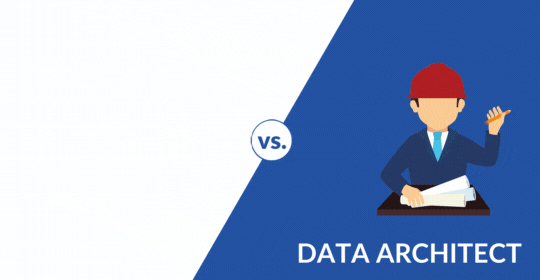As more organizations become aware of the central role data plays in their business processes, there’s more demand for skilled workers to handle various data management tasks. But there’s also more confusion around the differences between positions like data architect and data engineer.

Data Engineers are software engineers who build and integrate data from various parts of the data architecture and manage big data.
Data Architects design the “blueprint” for organizations Data Management. You may not be surprised to hear that this is a difficult job. Some companies need data architects who are ninjas in data modeling techniques; others may want experts in data warehousing, ETL tools, SQL databases or data administration. Data architects are likely to be senior-level employees with plenty of years in business intelligence under their belts.
Owns technology platforms and datasets that enable systems and people to uncover new insights and fine-tune operations to meet business goals
Designing, creating, deploying, and managing an organization’s data architecture
Big Data Engineer
Software engineering backgrounds, design and build complex data pipelines, work closely with data scientist to put code into production, they typically use a lot of tools and are expert coders using Python, Java, Scala, and/or C++. Experience in Hadoop ecosystem, Spark, AWS, etc.
Business Intelligence Engineer
Data warehousing backgrounds, typically understanding/gathering business requirements to then design, and build reporting solutions. Support the data warehouses, ETL, dashboards, and reports. Tools/Technologies: SSIS, PowerBI, Tableau, RDBMS systems, MicroStrategy
Machine Learning Engineer
Hybrid role, bridges the gap between data engineering and data science, these folks come from data engineering backgrounds, have enough experience to be proficient in both data engineering and data science. They take what a data scientist finds and gets it ready for production. They create the last part of the DS pipeline. This could be rewriting code from R/Python to Java/Scala.
Computer Vision Engineer
Software engineering background, specializing in machine learning and/or deep learning techniques in relation to object detection, pattern recognition, face recognition, object tracking, etc. They are a mix between data and machine learning engineers and use tools like Python, C++, OpenCV, MATLAB, Java, and Spark. Oftentimes have a Master’s or PhD in Computer Science.